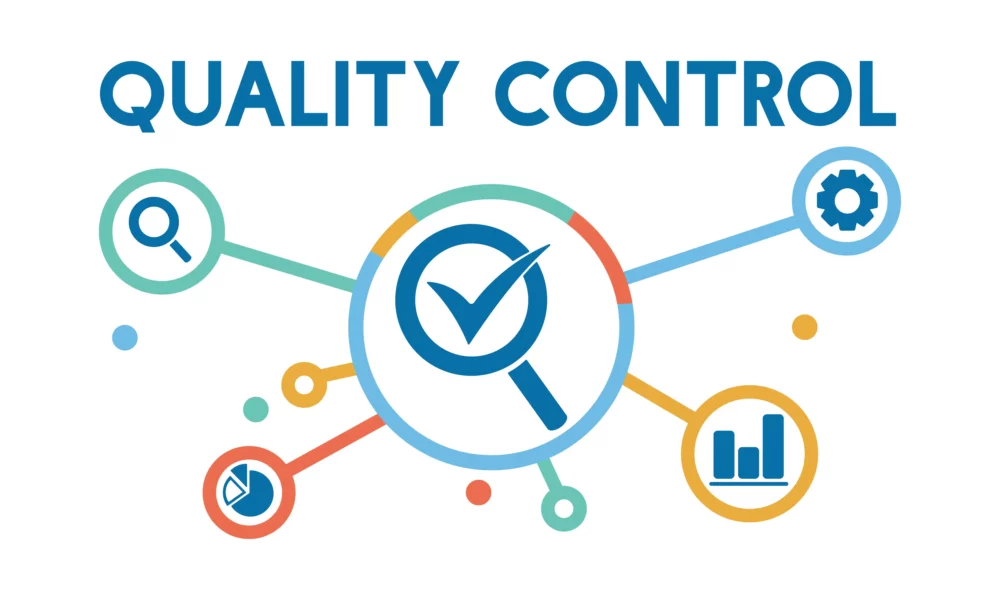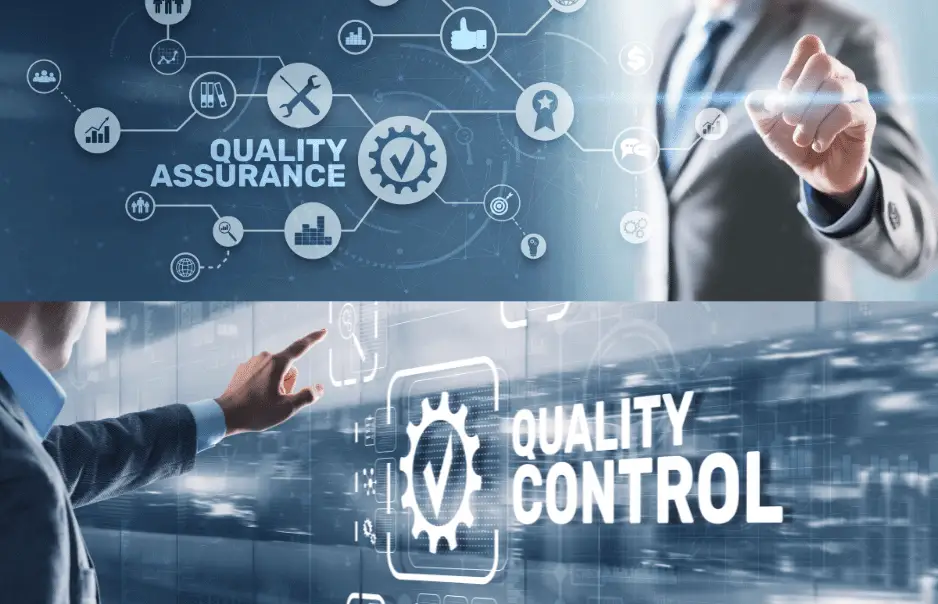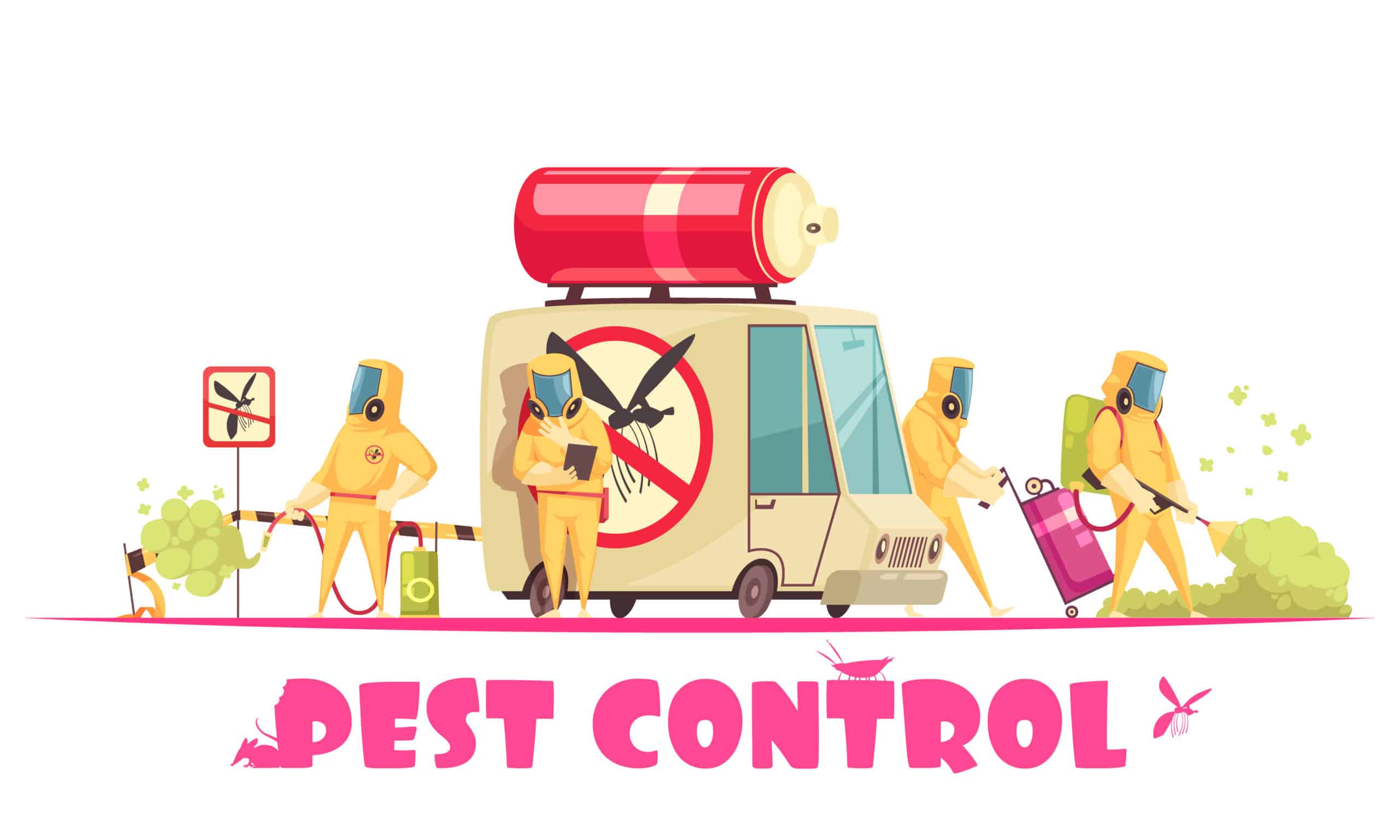Do you want to know how industries make sure the products and services you use are of top quality? Well, look no further! Welcome to the world of Quality Control. In this blog, we’ll break down the basics of Quality Control and explore why it’s so important, what different types of Quality Control exist, and what kinds of careers are available in this field.

Quality Control is an essential part of everyday life, yet it often goes unnoticed. It’s the process that ensures the products and services one uses meet high standards of excellence.
Read the blog ahead to learn what Quality Control is, why it’s necessary, the different types of Quality Control, and the various career opportunities available in this field.
What is Quality Control?
Consider for a moment that you are a garment manufacturer to better comprehend the concept. You would want to ensure that every garment you produce is of the same high quality, fits properly, and is free of flaws. To accomplish this, you would implement a QC procedure. This could involve inspecting each garment for tears or holes, confirming the fit, and ensuring the hues match the original design.
Quality Control (QC) is a process used to ensure that a product or service meets certain quality standards before being released to the market. It is a crucial stage in the production process because it allows for the detection and correction of any flaws or problems before they reach the customer.
Quality Control is essential for all organizations that produce a product or provide a service, not just manufacturers. This ensures that customers receive a product that fulfills their expectations and protects the company’s reputation.

Importance of Quality Control
Quality Control is essential because it ensures that products and services are of high quality, dependable, and meet consumer expectations.
Consider yourself a baker:
You must ensure that each quantity of cookies you produce is of the same high quality, has a delicious flavor, and is free of defects. To accomplish this, you would implement a Quality Control procedure.
This may involve examining each cookie for fissures or burns, evaluating the flavor, and ensuring that the ingredients are fresh.

Similarly, Quality Control is beneficial in the tech world for:
- Customer Satisfaction: Quality Control ensures that the product or service meets the customer’s requirements and expectations. This results in higher consumer satisfaction, repeat business, and favorable reviews.
- Reputation Management: A company’s reputation relies heavily on the quality of its products and services. Quality Control aids in identifying and correcting defects before they reach the customer, thereby reducing the risk of negative customer feedback and reputational harm.
- Cost Reduction: Quality Control can help to reduce costs by identifying and resolving defects early in the production process. This eliminates rework, material waste, and the possibility of having to replace defective products.
- Enhanced Efficiency: A well-designed and implemented Quality Control process can help optimize the production process and enhance efficiency. This contributes to increased productivity, decreased waste, and enhanced profitability.
- Compliance is essential for many industries due to the importance of regulations and standards. Quality Control reduces the risk of fines and legal penalties by ensuring that products and services conform to these regulations and standards.
Quality Assurance and Quality Control
Quality Assurance and Quality Control are two essential concepts for ensuring the utmost quality of products and services. Although they are related, they are not identical.
Quality Assurance is the implementation of a system of policies, procedures, and standards to assure the highest quality of the product or service being produced. It is a proactive approach to quality that focuses on preventing defects and ensuring that the product meets the required standards.
In contrast, Quality Control is the process of inspecting, testing, and confirming that the product or service meets the required quality standards. It is a quality approach that focuses on detecting and rectifying defects after they have occurred.
Simply stated, Quality Assurance serves as the foundation for Quality Control. Quality Assurance sets the groundwork for Quality Control in order to ensure that the proper processes and standards are in place and that the product or service is being produced at the appropriate quality level.
Quality Control is then responsible for confirming that the product meets the required specifications and locating and correcting any defects that may have occurred.

Types of Quality Control

There are numerous types of Quality Control methods, each with its own focus and procedures. Here is a concise overview of the most prevalent Quality Control methods:
- Process Control is a subset of Quality Control that focuses on monitoring and controlling the production processes. Imagine a traffic officer directing the flow of automobiles, but for a production line! By monitoring the process, you can identify any bottlenecks or problems and implement enhancements to boost efficiency and quality.
- Control Charts: Control charts are comparable to a Quality Control dashboard. They display the performance of a process over time and enable you to rapidly identify any trends or patterns that may indicate a problem. By regularly monitoring control charts, you can detect issues before they become significant problems and make the necessary adjustments to keep the process running smoothly.
- Acceptance sampling is comparable to inspecting a random sample of products from a production run. This type of Quality Control is used to determine whether or not the quantity meets the specified requirements. If the sample passes, the entire batch is accepted, but if it fails, the entire batch is rejected.
- Product Quality Control: This form of Quality Control concentrates on the final product. It entails testing and scrutinizing the product to ensure that it conforms to the necessary specifications and standards. Product Quality Control aids in identifying defects or issues prior to product release, ensuring that customers receive a high-quality product.
Jobs and a Profession in Quality Assurance
Individuals with a keen eye for detail and a commitment to ensuring that products satisfy high standards may find Quality Control to be a highly rewarding career path. This field offers a range of employment opportunities, from entry-level positions to senior management positions.
- Inspectors of Quality Control are responsible for inspecting products, components, and raw materials to ensure that they conform to the specified quality standards. They inspect products using a variety of instruments and methods, including measuring instruments, visual inspection, and functional testing.
- Similar to Quality Control Inspectors, Quality Control Technicians inspect products and materials, but may also be responsible for more complex testing and analysis. To assure quality, they use specialized equipment and conduct more extensive testing.
- Quality Control Engineers are accountable for the design and implementation of Quality Control procedures and processes. They collaborate closely with other departments, such as production and engineering, to ensure that products are manufactured in accordance with quality specifications.
- The Quality Control Manager is accountable for supervising the entire Quality Control process, from inception to execution. They ensure that all procedures are followed and, if necessary, make decisions to enhance processes.
- Technicians in this field are responsible for the maintenance and repair of measuring and testing apparatus used in quality control to ensure precision.They design and develop systems for measuring and testing products to ensure compliance with quality standards.
- Analyst for Statistical Process Control (SPC): They employ statistical methods to monitor and control the quality of a process, ensuring that it remains within predetermined limits.
- Specialist in Root Cause Analysis: They investigate problems and identify the underlying cause of quality problems in order to find a solution.
- Quality Documentation Specialists create, maintain, and manage quality control-related documents, including test reports and inspection logs. They collaborate with suppliers to ensure that the raw materials and components they provide satisfy the necessary quality standards.
- Coordinator, Quality Management System (QMS): They develop and maintain a company’s quality management system, ensuring that it adheres to international standards.
Future of Quality Control
Before being released to the market, quality control is the process of ensuring that products and services meet certain standards. The future of quality control is projected to be more innovative, efficient, and customer-centric in today’s swiftly developing technological environment.
The increased use of artificial intelligence (AI) and machine learning (ML) algorithms is one of the most significant upcoming developments in quality control. These technologies will assist in automating the inspection procedure, making it quicker, more accurate, and less susceptible to human error.
The future of quality control will also place a significant emphasis on the consumer experience. With the emergence of social media and online reviews, customers have greater influence over a brand’s reputation than ever before. As a result, businesses are placing a greater emphasis on ensuring their products satisfy the stringent requirements of their customers.
Conclusion
Quality Control plays a vital role in any organization and provides a variety of career opportunities for individuals committed to ensuring that the products and services they produce satisfy established excellence standards.
With a focus on attention to detail and a dedication to quality, a career in Quality Control can be extremely rewarding and provide a sense of fulfillment knowing that you are assisting in ensuring that products and services are of the utmost quality.
This concludes this informative blog post about the fascinating world of Quality Control. We hope that you now have a better grasp of what this field entails and the numerous career opportunities it provides. If you are interested in learning more about Quality Control or other related topics, please return shortly for additional informative and engaging content.





